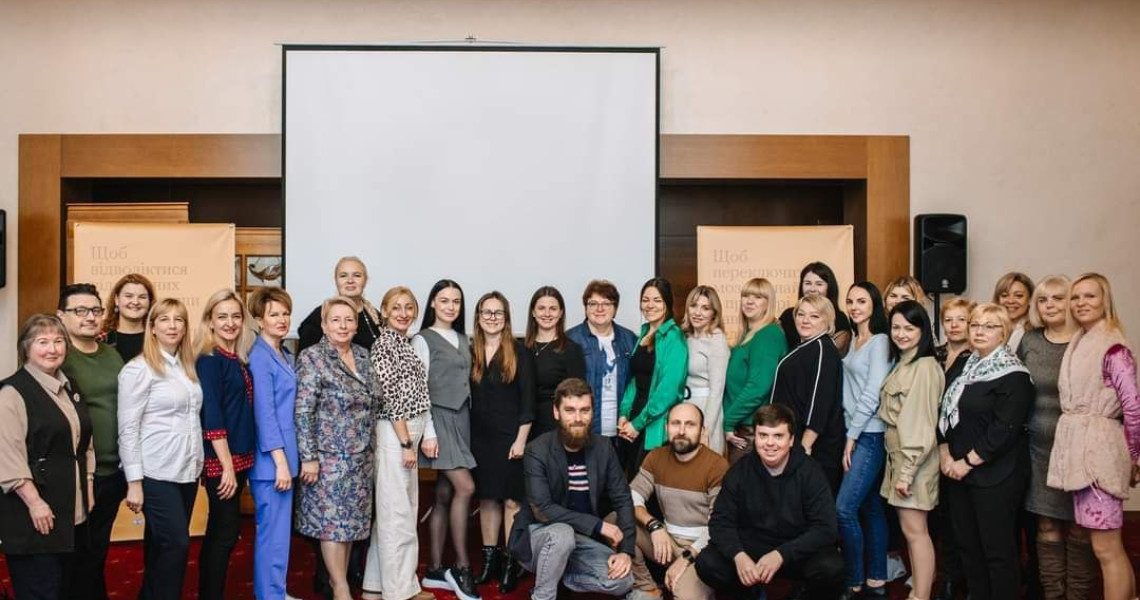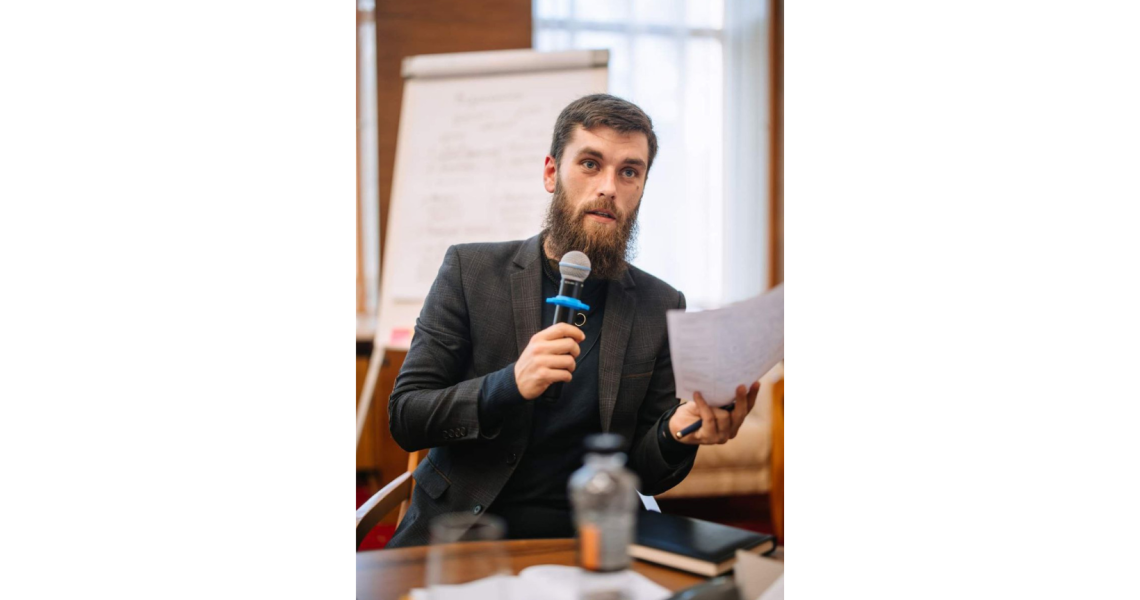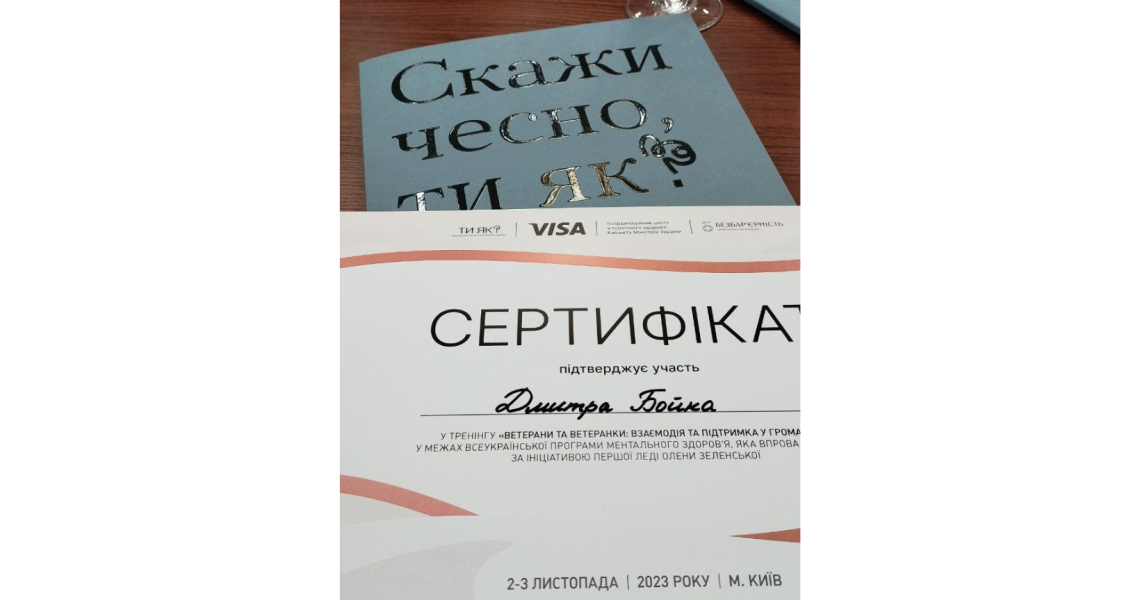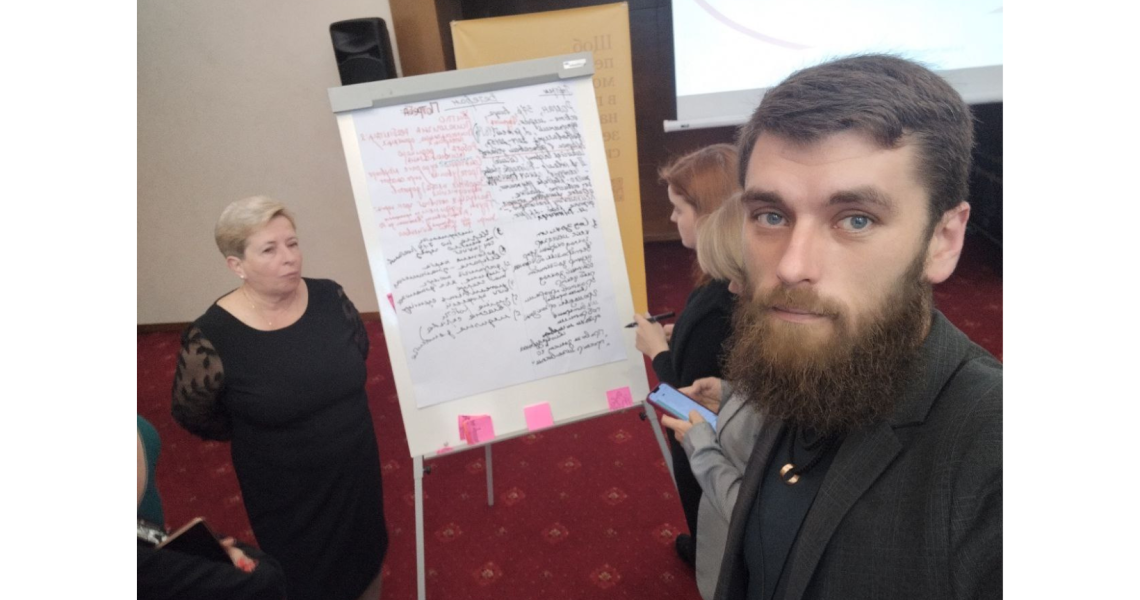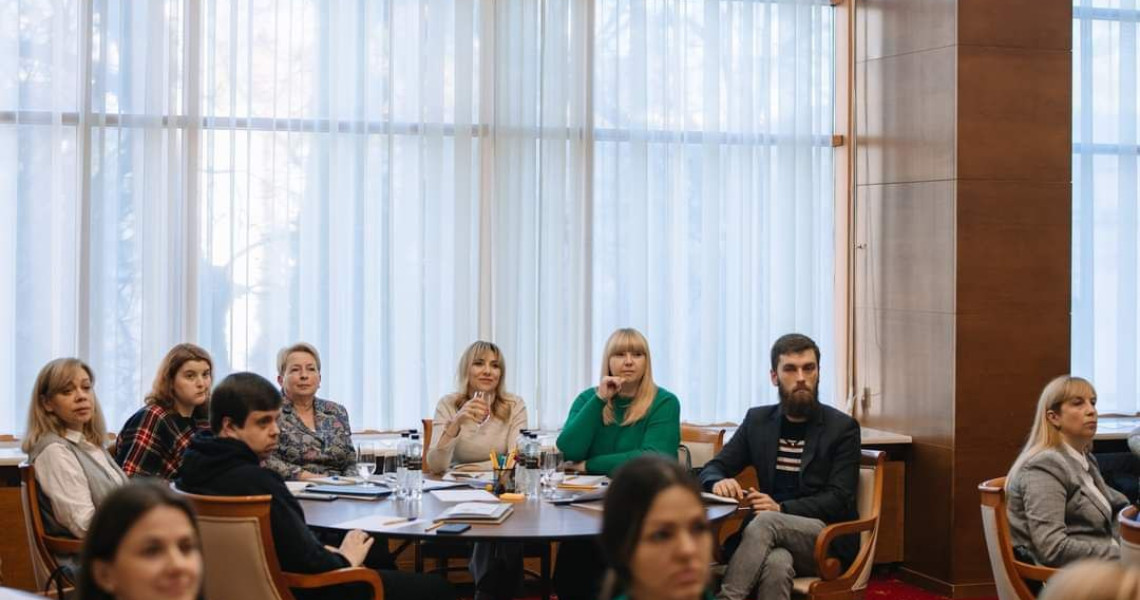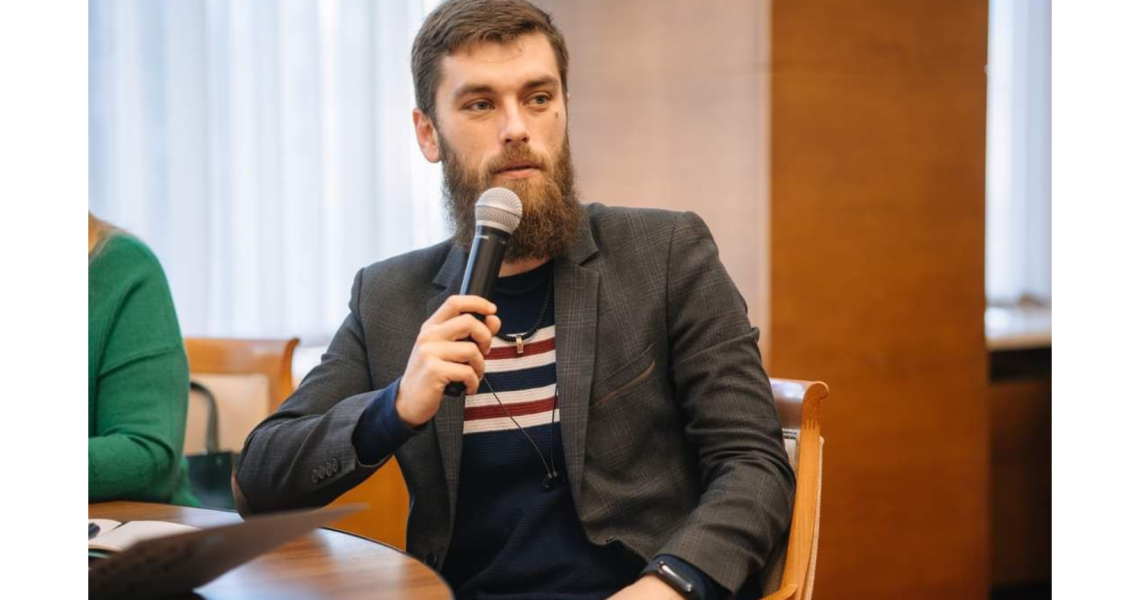Ветерани – невіддільна частина нашого суспільства. Однак, повертаючись до цивільного життя, вони зустрічають нерозуміння та невідомість майбутнього. Навички комунікації нині посідають окреме місце в усіх сферах життя українського суспільства, а питання спілкування з ветеранами стало важливим для кожного з нас.
2-3 листопада, у межах Всеукраїнської програми ментального здоров’я «Ти як?», яка впроваджується за ініціативою першої леді Олени Зеленської, було проведено дводенний тренінг «Ветерани та ветеранки: взаємодія та підтримка у громадах», організований Координаційним центром КМУ та ГО «Безбар′єрність» за підтримки учасника спільноти «Бізнес без бар′єрів» - компанії Visa (м. Київ).
У заході взяли участь регіональні координатори Всеукраїнської програми ментального здоров’я, психологи, представники ЗВО, соціальних служб, Державного центру зайнятості та Національного агентства України з питань державної служби. Від Полтавського державного медичного університету до тренінгу долучився член робочої групи Навчально-наукового центру ментального здоров’я ПДМУ, доцент кафедри психіатрії, наркології та медичної психології Дмитро Бойко.
Тренерами заходу виступили: заступниця директора з психологічного напряму Центр психічного здоров’я та реабілітації «Лісова поляна» МОЗ України Тетяна Сіренко, член Правління ГО «Простір можливостей», представник Конфедерації роботодавців України Ярослав Павловський та бізнес-коуч із розвитку керівників Марина Коптіль.
Тренінгові заняття передбачали обговорення питань реінтеграції ветеранів та формування ветеранської політики. Під час стратегічної гри визначили портрет ветерана або ветеранки, формулювали їх потреби, інструменти реалізацій, особливості взаємодії зі стейкхолдерами.
Другий день було присвячено психологічним особливостям навчання дорослих, вивчали формати та сучасні інструменти, освоювали методику створення тренінгу, щоб кожен учасник умів розробити план тренінгу, тримати увагу учасників, зрозуміло та доступно роз’яснити тематику.
“Veterans: Interaction and Support in Communities” training attended by representative of PSMU
Veterans are an integral part of our society. However, upon returning to civilian life, they often encounter misunderstanding and uncertainty about the future. Communication skills now hold a special place in all spheres of Ukrainian society, and the issue of communicating with veterans has become important for each of us.
On November 2-3, within the framework of the All-Ukrainian Mental Health Program “How Are You?” initiated by the First Lady Olena Zelenska, a two-day training on “Veterans: Interaction and Support in Communities” was conducted. The event was organized by the Coordination Center of the Cabinet of Ministers of Ukraine and the NGO “Barrier-Free” with the support of the participant in the “Business Without Barriers” community, Visa company (Kyiv).
The event was attended by the regional coordinators of the All-Ukrainian Mental Health Program, psychologists, representatives of higher education institutions, social services, the State Employment Center and the National Agency of Ukraine for Civil Service. Poltava State Medical University was represented by Associate Professor Dmytro Boyko, Department of Psychiatry, Narcology, and Medical Psychology, who is the member of the working group of the Mental Health Education and Research Center at PSMU.
The trainers for the event were: Tetiana Sirenko, Deputy Director for Psychological Direction at the Mental Health and Rehabilitation Center “Lisova Polyana,” Ministry of Health of Ukraine; Yaroslav Pavlovskyi, member of the Board of the NGO “Space of Opportunities,” representative of the Confederation of Employers of Ukraine; and Maryna Koptil, business coach for the development of leaders.
The training sessions involved discussions on the issues of veterans' reintegration and the formation of veteran policy. During a strategic game, the participants identified the portrait of a veteran, formulated their needs, implementation tools and features of interaction with stakeholders.
The second day was dedicated to the psychological peculiarities of adult learning, exploring formats and modern tools, and mastering the methodology of creating training programs so that each participant could develop a training plan, keep the participants' attention, and explain the topic clearly and accessibly.






